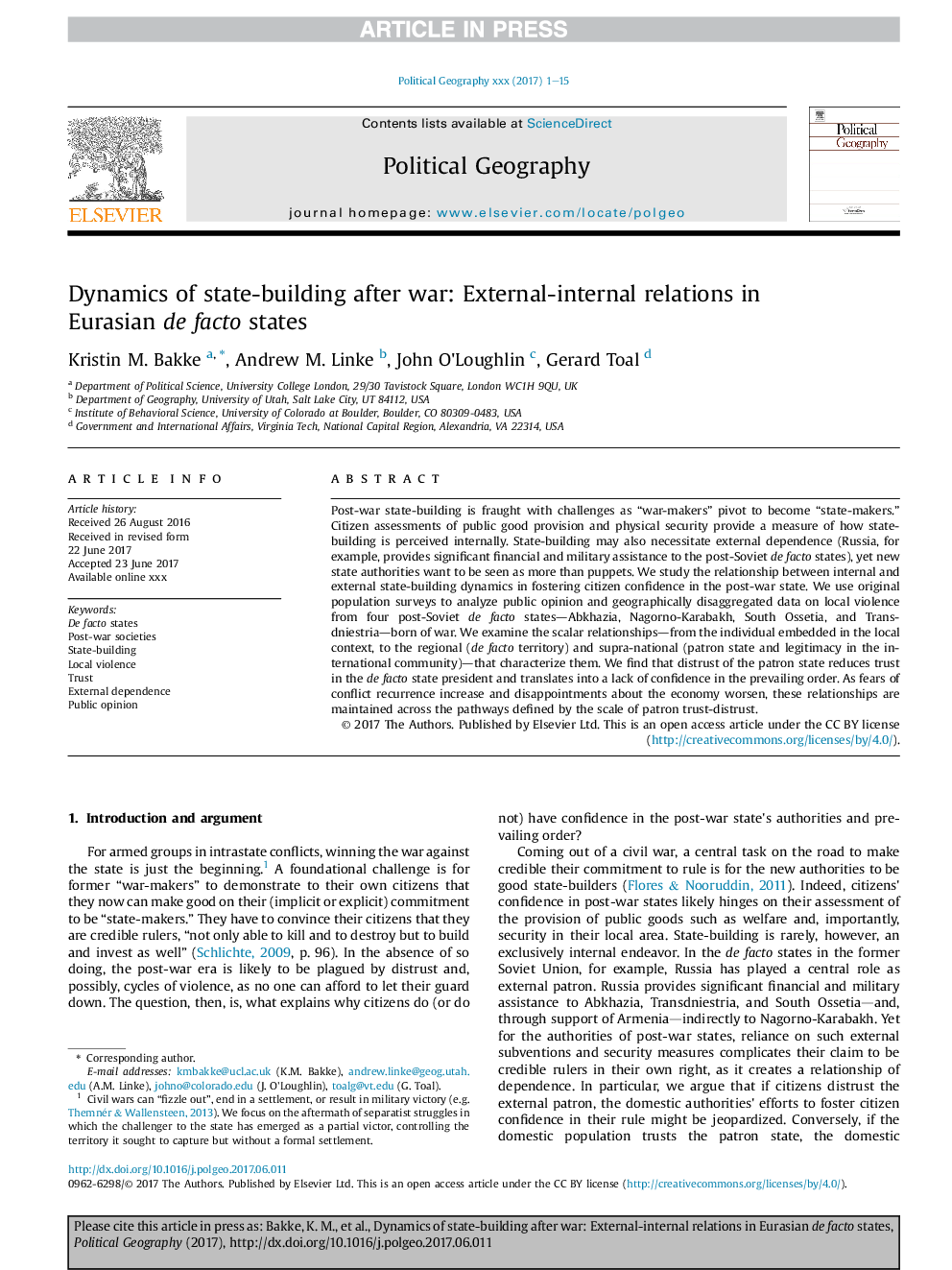| Article ID | Journal | Published Year | Pages | File Type |
|---|---|---|---|---|
| 7492807 | Political Geography | 2018 | 15 Pages |
Abstract
Post-war state-building is fraught with challenges as “war-makers” pivot to become “state-makers.” Citizen assessments of public good provision and physical security provide a measure of how state-building is perceived internally. State-building may also necessitate external dependence (Russia, for example, provides significant financial and military assistance to the post-Soviet de facto states), yet new state authorities want to be seen as more than puppets. We study the relationship between internal and external state-building dynamics in fostering citizen confidence in the post-war state. We use original population surveys to analyze public opinion and geographically disaggregated data on local violence from four post-Soviet de facto states-Abkhazia, Nagorno-Karabakh, South Ossetia, and Transdniestria-born of war. We examine the scalar relationships-from the individual embedded in the local context, to the regional (de facto territory) and supra-national (patron state and legitimacy in the international community)-that characterize them. We find that distrust of the patron state reduces trust in the de facto state president and translates into a lack of confidence in the prevailing order. As fears of conflict recurrence increase and disappointments about the economy worsen, these relationships are maintained across the pathways defined by the scale of patron trust-distrust.
Related Topics
Social Sciences and Humanities
Arts and Humanities
History
Authors
Kristin M. Bakke, Andrew M. Linke, John O'Loughlin, Gerard Toal,
